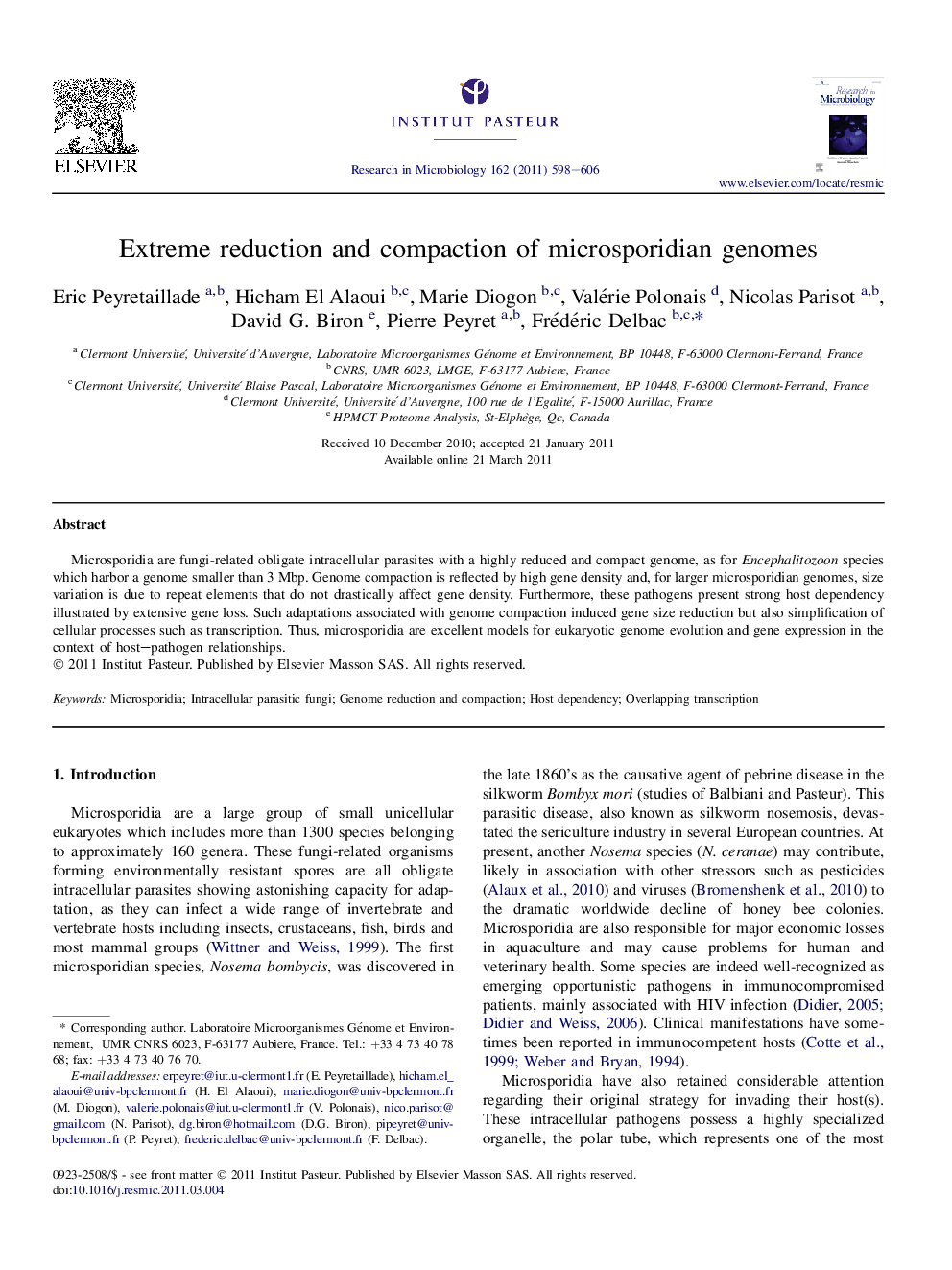| Article ID | Journal | Published Year | Pages | File Type |
|---|---|---|---|---|
| 6288167 | Research in Microbiology | 2011 | 9 Pages |
Abstract
Microsporidia are fungi-related obligate intracellular parasites with a highly reduced and compact genome, as for Encephalitozoon species which harbor a genome smaller than 3Â Mbp. Genome compaction is reflected by high gene density and, for larger microsporidian genomes, size variation is due to repeat elements that do not drastically affect gene density. Furthermore, these pathogens present strong host dependency illustrated by extensive gene loss. Such adaptations associated with genome compaction induced gene size reduction but also simplification of cellular processes such as transcription. Thus, microsporidia are excellent models for eukaryotic genome evolution and gene expression in the context of host-pathogen relationships.
Keywords
Related Topics
Life Sciences
Immunology and Microbiology
Applied Microbiology and Biotechnology
Authors
Eric Peyretaillade, Hicham El Alaoui, Marie Diogon, Valérie Polonais, Nicolas Parisot, David G. Biron, Pierre Peyret, Frédéric Delbac,
